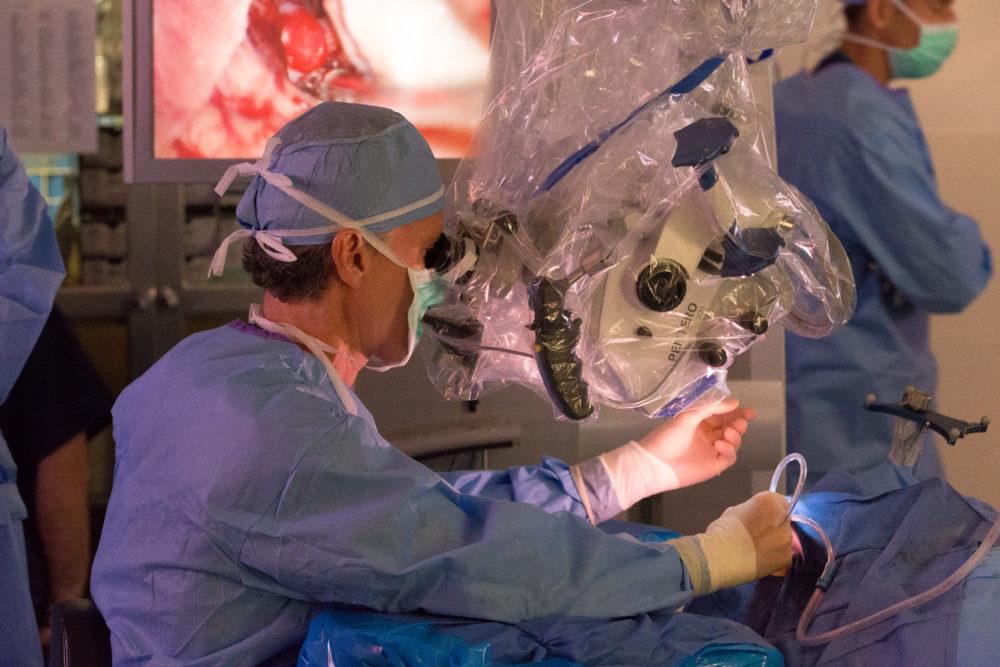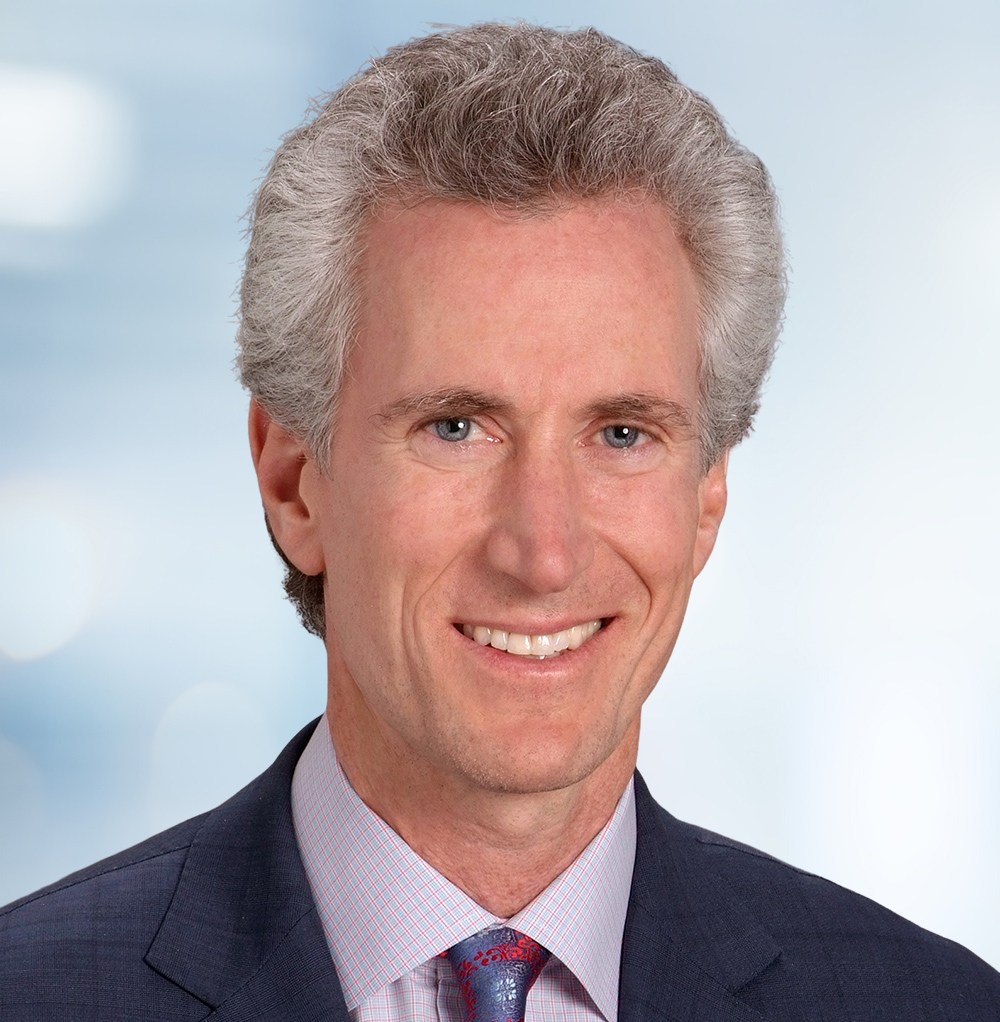
Dr. Michael T. Lawton Honored to Lead Barrow Neurosurgery Residents
In 1997, Michael T. Lawton, MD, graduated from the Neurosurgery Residency Program at Barrow Neurological Institute. He completed an additional cerebrovascular fellowship under the mentorship of Robert Spetzler, MD. Dr. Lawton went on to become vice chairman of the Department of Neurosurgery and chief of vascular neurosurgery at University of California, San Francisco (UCSF).
Dr. Lawton has returned to Barrow 20 years later to succeed Dr. Spetzler, who retired this summer after more than three decades as president and CEO of the Institute and chair of the Department of Neurosurgery. Dr. Lawton estimates he trained about 80 residents at UCSF and is now overseeing Barrow’s 28 neurosurgery residents.
We spoke to Dr. Lawton about his homecoming and his plans for the Neurosurgery Residency Program.
What do you enjoy about training residents?
“I have a real passion for neurosurgery, and I enjoy trying to instill the same in the residents.”
What do you think makes the Neurosurgery Residency Program at Barrow unique and so highly sought after among medical school graduates?
“The first thing is that there’s a tremendous volume of surgical cases here that are complex, unique, and challenging. Any time you get tough cases that really challenge the surgeons and residents, it becomes exciting to work here. I think what makes Barrow unique is how there’s a real eye toward being the best and achieving a level of technical excellence that most other places don’t or can’t. When you’re in that environment, everybody pushes a little harder and the quality of the work and the creativity that comes out is just really exciting.”
When you were applying for neurosurgery residency programs, why did you rank Barrow as one of your top choices?
“When I was applying, a lot of the established Eastern academic centers were doing things the old way that wasn’t all that exciting or innovative. When I came here, I saw that things were being done completely differently with the latest technology, new ideas, and really bold techniques. I realized that I wanted to be a part of that school and not the old school.”
How does it feel to return to the place where you did your neurosurgery residency and step into the shoes of your former chairman, Dr. Spetzler?
“I’ve always felt that when you’re connected to a place with some deep personal tie, it’s more meaningful and you do a better job. Coming back to the place where I trained is especially meaningful, and to replace the person who trained me and also to replace a true legend in neurosurgery is a real honor for me.”
In what ways do you plan to build upon the neurosurgery residency program developed by Dr. Spetzler?
“It’s tough to take a great program and make it better. In many ways, I feel like my duty is to carry the torch and maintain the degree of excellence and the tradition of innovation here. I would like to improve it by finding ways to reinvent the training process to reimagine what neurosurgery will look like in 10 years and make it happen. I would also like to broaden Barrow in some of the other disciplines that were outside of Dr. Spetzler’s areas of interest.”
What are some of your impressions of the new PGY-1 residents?
“The PGY-1 residents are phenomenal. I have had the privilege of working with two of them very closely before I even got here, so I know just how talented they are. All of them have amazing academic pedigrees. They’re all very smart, hard-working, and destined for success, so I feel very confident they will set the standard for all the neurosurgery residents who follow them. My job is just to make sure that we keep high quality residents coming in all the time and help them become the very best that they can possibly be.”

